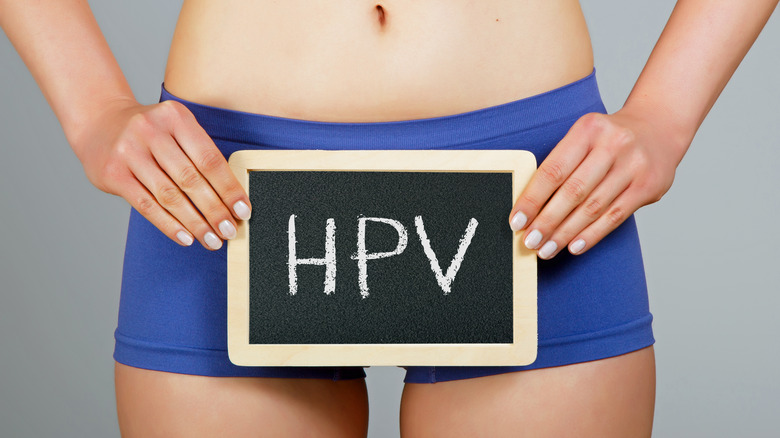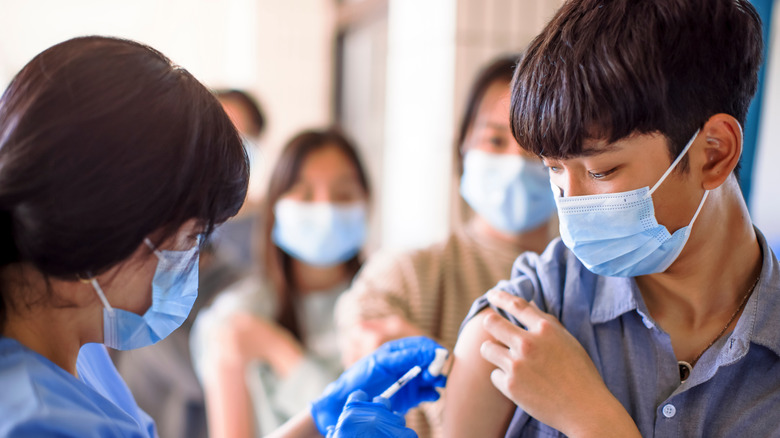More Teens Are Getting Vaccinated Against HPV. Here's Why Experts Say This Is Important
The human papillomavirus, also known as HPV, is a common sexually transmitted infection (STI). According to the Centers for Disease Control and Prevention (CDC), it's the most common STI in the United States, typically affecting people in their late teens and early 20s. The dangers of HPV can be serious and potentially fatal, causing health problems like genital warts and cancer. Fortunately, vaccines have been developed to prevent these outcomes.
HPV infections are often transmitted through sexual activity or skin-to-skin contact (per Mayo Clinic). In most cases, the immune system defeats HPV on its own, but when it does not go away symptoms may appear. Common signs of HPV include genital warts that look like small or large bumps in the genital area. These should be formally diagnosed by a healthcare provider. It's also possible to contract HPV and experience no symptoms, which is why women are encouraged to get pap smears (via Women's Health).
A more serious outcome of HPV is cancer. HPV can cause cancer in the cervix, vulva, vagina, penis, anus, or throat (per CDC). Cancer caused by HPV often takes decades to develop after infection.
To avoid HPV and the serious health issues it can cause, doctors encourage individuals to receive the HPV vaccine as soon as they are eligible. The CDC recommends adolescents and young adults get vaccinated to protect themselves from the virus.
Should your teen get vaccinated?
In recent years the HPV vaccine has been on the rise (per Healthline). In a study by the American Academy of Pediatrics, researchers say that more than 75% of all adolescents in the United States ages 13 to 17 had received at least one dose of the HPV vaccine by 2020. That was up from about 56% in 2015.
Vaccination against the STI was first recommended for women and girls under age 26 (via Healthline). In 2009, it was approved for young men and boys to receive it too. Judy Klein, a member of the National HPV Roundtable, tells Healthline, "HPV vaccination is important for boys and girls to prevent cancers that can happen later in life... and affect more men than women."
According to the CDC, HPV vaccination has proven to be safe and effective for more than a decade. Complete protection from HPV requires two to three shots of Gardasil or Cervarix vaccines, depending on a person's age. Scientists continue to monitor the vaccines to ensure they are safe for patients. Potential side effects are possible, including pain or redness in the arm, nausea, dizziness, or headache, but the benefits of the vaccine against HPV outweigh the risks.


